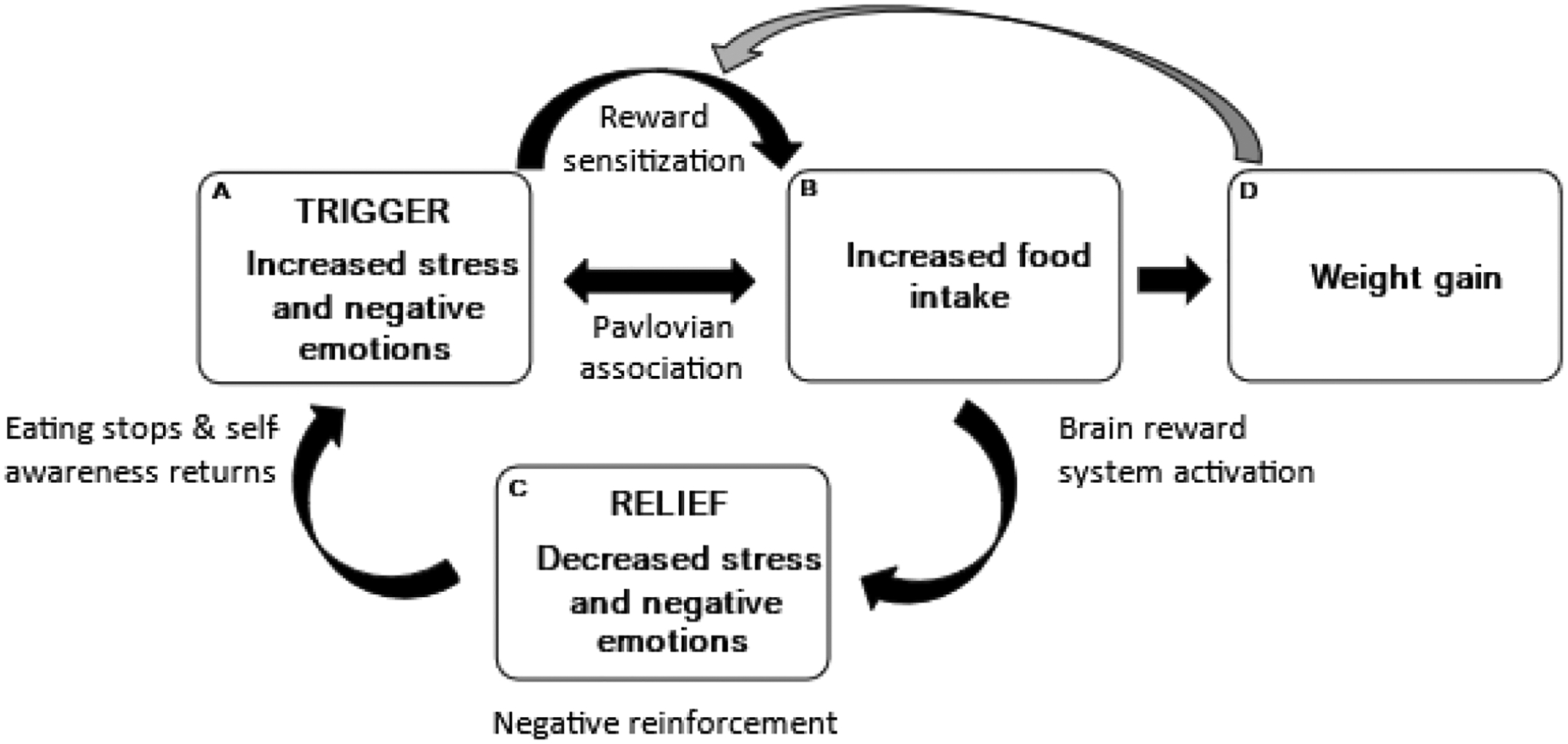Figure 5.

Results of the present study indicate that greater lifetime stressor exposure may enhance Box C of the emotion regulation model. The model depicts a feed-forward cycle in which greater stress and negative emotions (i.e., trigger; box A) sensitize the brain reward system and lead to more food intake (box B) and weight gain (box D). Comfort food intake (box B) causes further activation of the brain reward system and leads to reduced stress and negative emotions (i.e., relief; box C). However, this short-term negative reinforcement is not sustained, as stress and negative emotions (box A) return upon the cessation of eating. Over time, stressors and negative emotions (box A) are more likely to trigger food intake because of positive feedback from factors such as conditioning, brain reward processes, enhanced emotion regulation motives, and weight gain. Reproduced from Klatzkin et al. (2021).
